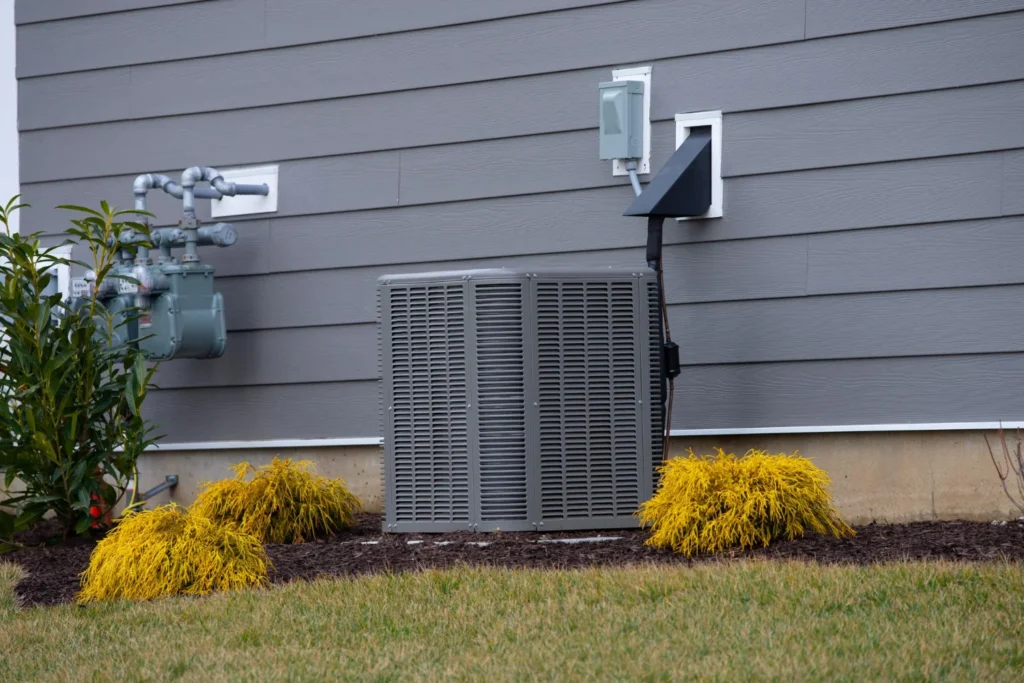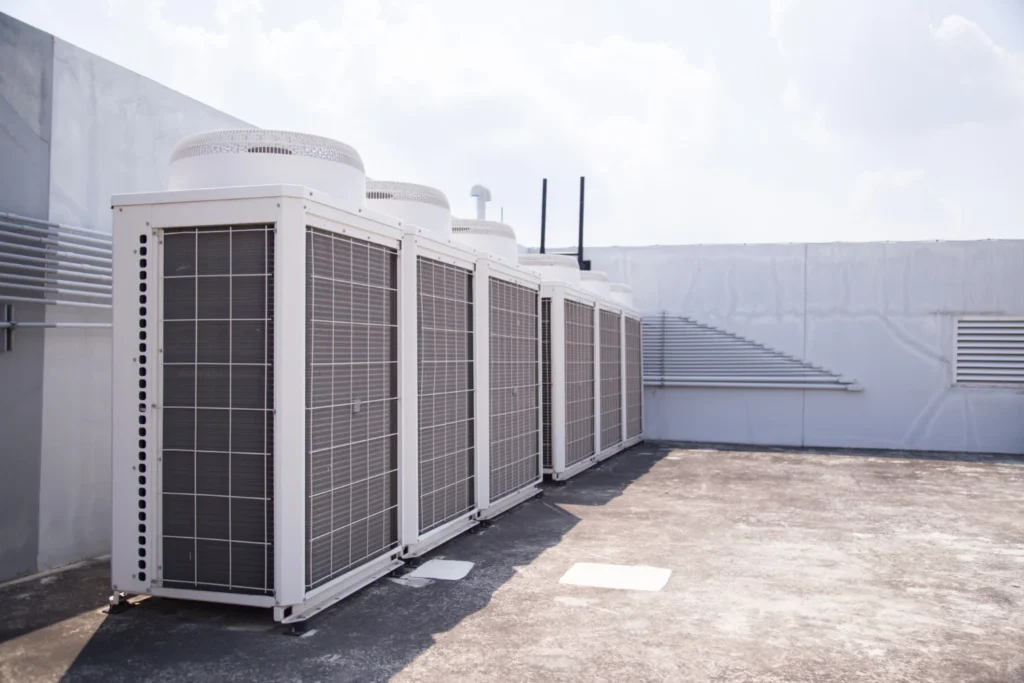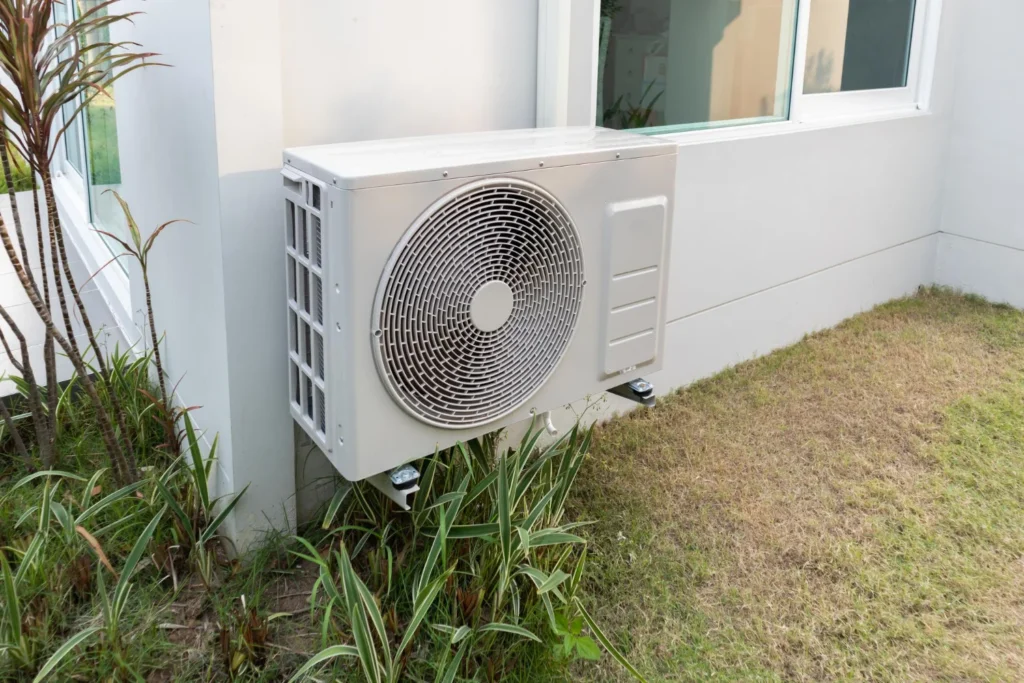I am wondering what size AC unit do I need. Look no further! Our guide is your go-to resource for all things cooling. We’ll simplify the process and help you navigate the maze of options to find the perfect fit for your home. From understanding square footage to maximizing energy efficiency, we’ve got the insider tips you need.
Say goodbye to guesswork and hello to cool comfort all year round. Whether you’re a newbie or a seasoned homeowner, we’ve got you covered. Get ready to frontload your knowledge and make the intelligent choice for your cooling needs. Let’s get started!
What Size AC Unit Do I Need?
Wondering, What Size AC Unit Do I Need? for your home is super important. It can make a big difference in how comfy you feel and how much you spend on energy bills. Let’s dive deeper into this topic so you can grasp all the ins and outs of picking the perfect HVAC unit.
Why HVAC Size Matters?

Why it’s matter to decide “What size AC Unit Do I need?” so important step: The size of your heating, ventilation, and air conditioning (HVAC) system is about more than just its physical size. It directly impacts how well your home stays cool. If it’s too small, it’ll have a hard time keeping up, leaving you uncomfortable and possibly with higher energy bills as it strains to keep up. On the flip side, if it’s too big, it might cool your home too fast, which sounds nice but can lead to frequent cycling on and off, wearing out the equipment and running inefficiently.
How to Calculate the Size of AC You Need?
When figuring out What Size AC Unit Do I Need, you’ve got to consider a bunch of stuff. How big your place is, what the weather’s like where you live, how well insulated your home is, how many and how big your windows are, and even which way your house faces in relation to the sun.
Getting all these factors right is super important so you don’t end up with an AC that’s too small or too big for what you need. Pros often use something called the Manual J calculation to nail down the perfect size for your place. With the right size AC, you’ll stay comfy and save energy without any headaches from a system that’s too small or too big.
Air Conditioner (AC) Too Small
When your air conditioner is too small for your home, it can’t keep up with cooling, especially when it’s scorching outside. This means your house might not get as cool as you’d like, leaving you feeling pretty uncomfortable and annoyed.
Plus, an undersized AC might have to run non-stop, which can wear it out faster and make your energy bills higher as it struggles to keep up. Fixing this issue might mean switching to a more considerable AC that can handle cooling your home correctly that’s why important to understand What size AC unit do i need?.
Air Conditioner (AC) Too Large
Conversely, an air conditioner that is too large for your home can also lead to a host of problems. While it may cool your home quickly, it will often cycle on and off frequently, a phenomenon known as short cycling. This frequent cycling not only leads to inefficient operation but also results in uneven temperatures and poor humidity control within your home.
Additionally, an oversized AC unit may not remove humidity effectively, leaving your indoor environment feeling clammy or sticky. To rectify this issue, you may need to replace the large unit with one that is appropriately sized for your home’s cooling needs.
Find the What Size AC Unit Do I Need?

Picking the right air conditioner for your home is vital to staying comfy and saving energy. Think about stuff like how your home is set up if you’ve already got ducts, and how much cooling you need. If you’ve got ducts already, central air is excellent for keeping every room cool evenly.
But if you don’t have ducts or just need to cool certain spots, a ductless mini-split system is super flexible. By picking the type that suits your home best, you’ll stay cool and cozy all year round.
Review Ratings – What Size AC Unit Do I Need?
When you’re picking out an HVAC system for your home, it’s essential to check out how efficient different models are. Look for ones with high Seasonal Energy Efficiency Ratio (SEER) ratings because that means they use less energy to cool your home, which can save you money on your bills and be better for the environment.
Also, keep an eye out for Energy Star certification, which means the system meets strict energy efficiency standards set by the Environmental Protection Agency (EPA). By checking out the ratings for the size of HVAC you need, you can pick one that works great and saves energy, too.
Why HVAC Size Matters?
The size of your HVAC system is super important because it affects how well it works and how efficient it is. If it’s the wrong size, you could run into all sorts of problems like not enough cooling, the system turning on and off too often, rooms being too hot or too cold, and using more energy than needed.
If it’s too small, your home might not get cool enough, which means you’re uncomfortable and might end up with higher bills. But if it’s too big, it might cool your home fast, but it wastes energy by constantly turning it on and off, which can wear out the system more quickly. Making sure your HVAC system is just the right size for your home can help you avoid these issues and keep you comfy while saving energy.
What Is a SEER Rating?
The Seasonal Energy Efficiency Ratio (SEER) is a measure of the efficiency of an air conditioning system over an entire cooling season. It represents the ratio of the cooling output of the system to the energy input, measured in British Thermal Units (BTUs) per watt-hour. In simpler terms, the SEER rating indicates how efficiently the system converts electricity into cooling.
The higher the SEER rating, the more energy-efficient the system is, resulting in lower operating costs and reduced environmental impact. SEER ratings typically range from 13 to 25, with higher ratings indicating greater efficiency. When choosing an air conditioning system, look for models with higher SEER ratings to maximize energy savings and reduce your carbon footprint.
How to Save Money on Air Conditioning?

Saving money on air conditioning doesn’t have to mean sacrificing comfort. There are several strategies you can implement to reduce your cooling costs while maintaining a comfortable indoor environment:
- Upgrade to an Energy-Efficient System: Consider replacing your old air conditioner with a newer, more energy-efficient model. Look for systems with high SEER ratings, as they are designed to consume less energy while providing the same level of cooling.
- Improve Insulation: Proper insulation helps keep cool air inside your home and prevents hot air from infiltrating from the outside. Insulate your attic, walls, and windows to minimize heat transfer and reduce the workload on your air conditioner.
- Seal Air Leaks: Inspect your home for air leaks around doors, windows, and ductwork. Seal any gaps or cracks with weatherstripping or caulk to prevent conditioned air from escaping and warm air from entering your home.
- Use a Programmable Thermostat: Install a programmable thermostat and set it to adjust the temperature based on your schedule. By raising the temperature when you’re away or asleep, you can reduce your cooling costs without sacrificing comfort.
- Maintain Your System: Regular maintenance is essential for optimal performance and efficiency. Schedule annual tune-ups with a qualified HVAC technician to clean and inspect your air conditioner, replace filters, and address any issues before they escalate.
- Use Fans: Ceiling fans and portable fans can help circulate air throughout your home and make it feel cooler without lowering the thermostat setting. Use fans strategically to maximize comfort and reduce your reliance on air conditioning.
- Block Sunlight: Install window treatments such as blinds, curtains, or shades to block out sunlight during the hottest parts of the day. This can help reduce the amount of heat entering your home and lessen the workload on your air conditioner.
By implementing these strategies, you can reduce your air conditioning costs and enjoy a more energy-efficient home.
FAQ About What Size AC Unit Do I Need
Frequently asked questions related to What Size AC Unit Do I Need?
How many square feet does a 3-ton AC unit cover?
A 3-ton air conditioning unit can typically cover between 1,200 to 1,600 square feet of living space, depending on factors such as climate, insulation levels, and ceiling height.
How do I calculate what size air conditioner I need?
To calculate the size of the air conditioner you need, multiply the square footage of your home by 25 BTUs (British Thermal Units) for every square foot. For example, a 2,000-square-foot house would require a 50,000 BTU unit. Alternatively, you can consult with an HVAC professional who can perform a Manual J calculation, taking into account various factors such as climate, insulation, and window orientation to determine the appropriate size for your home.
What Size AC Unit Do I Need for a 2000 Square Foot House?
For a 2000-square-foot house, you would generally need an air conditioner with a cooling capacity ranging from 3.5 to 4 tons. However, the exact size of the unit required depends on factors such as climate, insulation levels, and ceiling height. It’s recommended to consult with an HVAC professional who can perform a Manual J calculation to determine the precise size of the air conditioner needed to cool your home effectively.
How Many Square Feet Will a 2.5 Ton AC Unit Cool?
A 2.5-ton air conditioning unit can typically cool between 1,000 to 1,400 square feet of living space. However, the actual cooling capacity may vary depending on factors such as climate, insulation levels, and ceiling height. It’s essential to consult with an HVAC professional to determine if a 2.5-ton unit is appropriate for your specific cooling needs.
How Big of a House Will a 3-Ton AC Unit Cool?
A 3-ton air conditioning unit is suitable for cooling approximately 1,200 to 1,600 square feet of living space. However, the actual cooling capacity may vary depending on factors such as climate, insulation levels, and ceiling height. It’s advisable to consult with an HVAC professional to determine if a 3-ton unit is the right size for your home’s cooling requirements.
Choose the Best AC Installation Company
When it comes to selecting the best AC installation company in Richmond, TX, look no further than 75-degree AC. Our team of experienced technicians is dedicated to providing top-quality service and ensuring your complete satisfaction with every installation.
Why Choose 75 Degree AC?
- Experience and Expertise: With years of experience in the HVAC industry, our technicians have the knowledge and skills to handle all your AC installation needs efficiently and professionally.
- Licensed and Certified: 75 Degree AC is fully licensed and insured, and our technicians are certified by NATE (North American Technician Excellence), guaranteeing that they meet the highest industry standards for competency and professionalism.
- Customer Satisfaction: We pride ourselves on our commitment to customer satisfaction. Our team goes above and beyond to ensure that every installation is done right the first time, and we strive to exceed your expectations at every step of the process.
- Transparent Pricing: At 75 Degrees AC, we believe in transparent pricing. We provide detailed estimates upfront so you know exactly what to expect, with no hidden fees or surprises.
- Warranties and Guarantees: We stand behind our work and offer warranties on both the equipment and the installation artistry, giving you peace of mind and protection for your investment.
- Energy Efficiency Solutions: Our team can recommend energy-efficient solutions that will help you save money on your utility bills while reducing your environmental footprint. We’re committed to helping you achieve maximum efficiency and comfort in your home.
Contact Us
Ready to schedule your AC installation with the best in the business? Give us a call at (713)-598-2737 or email us at 75degreeacservices@gmail.com. Trust 75 Degree AC for all your AC installation needs in Richmond, TX.
